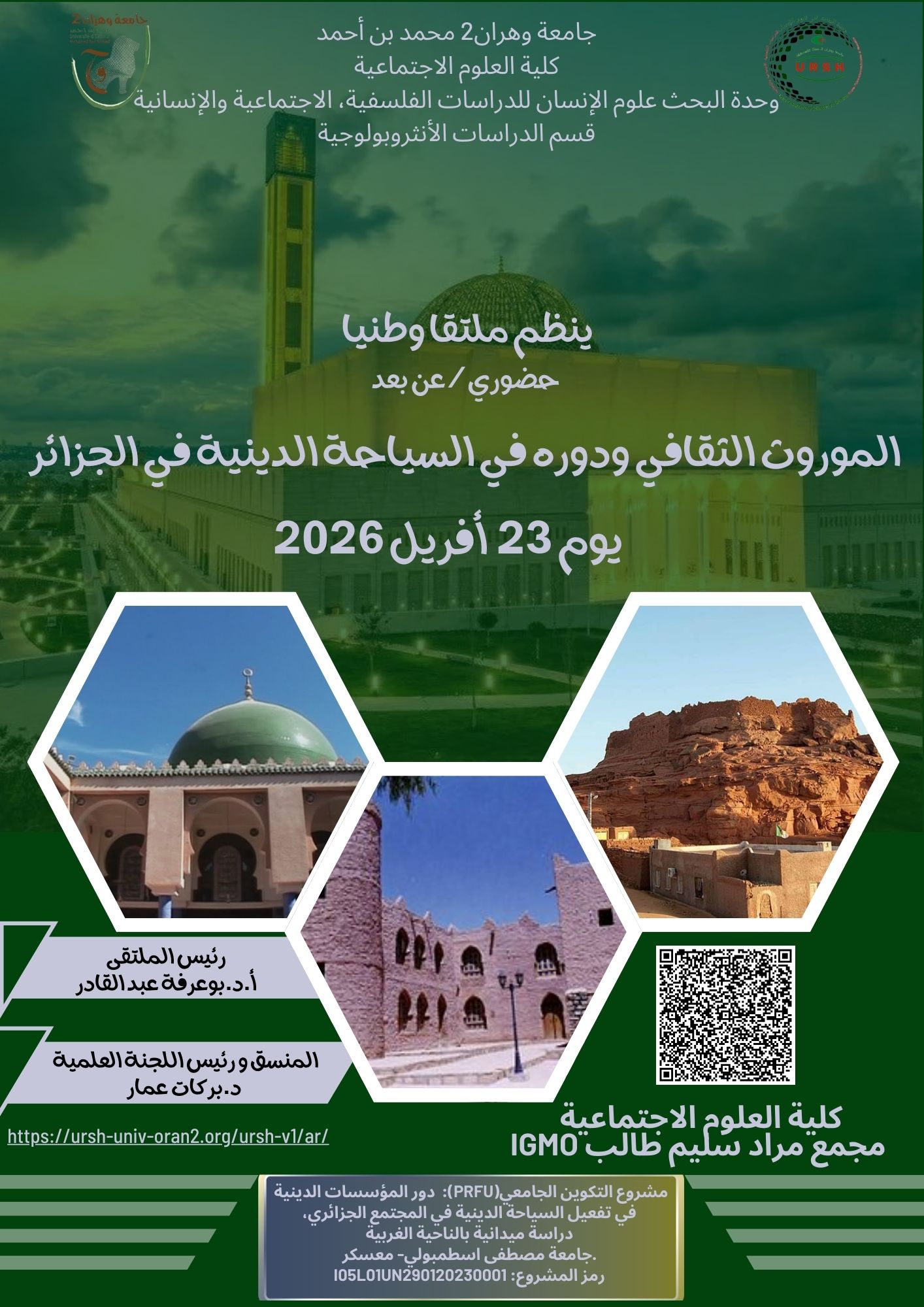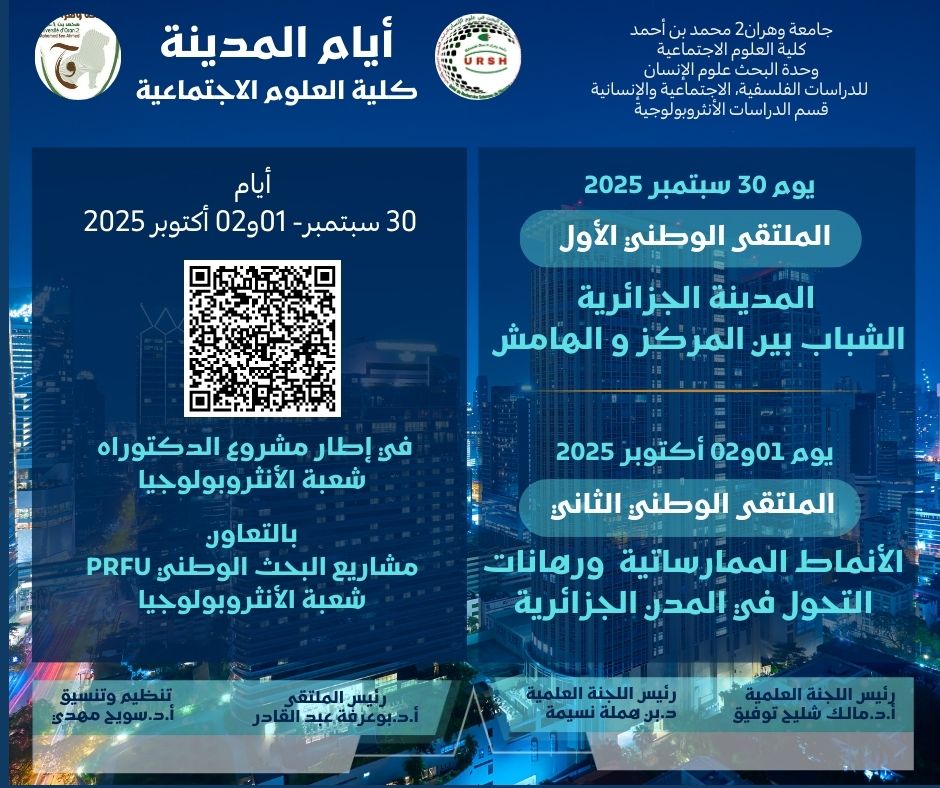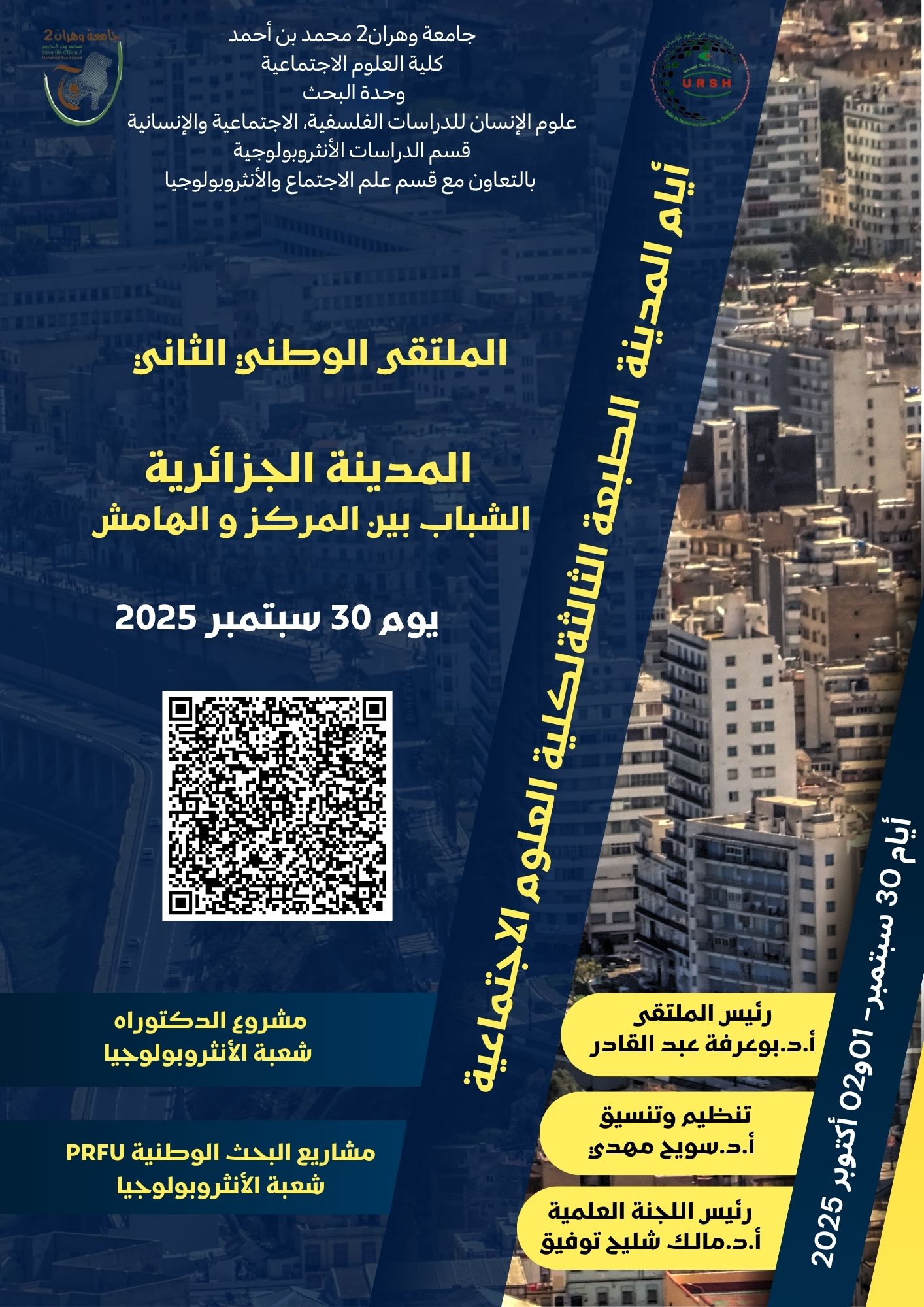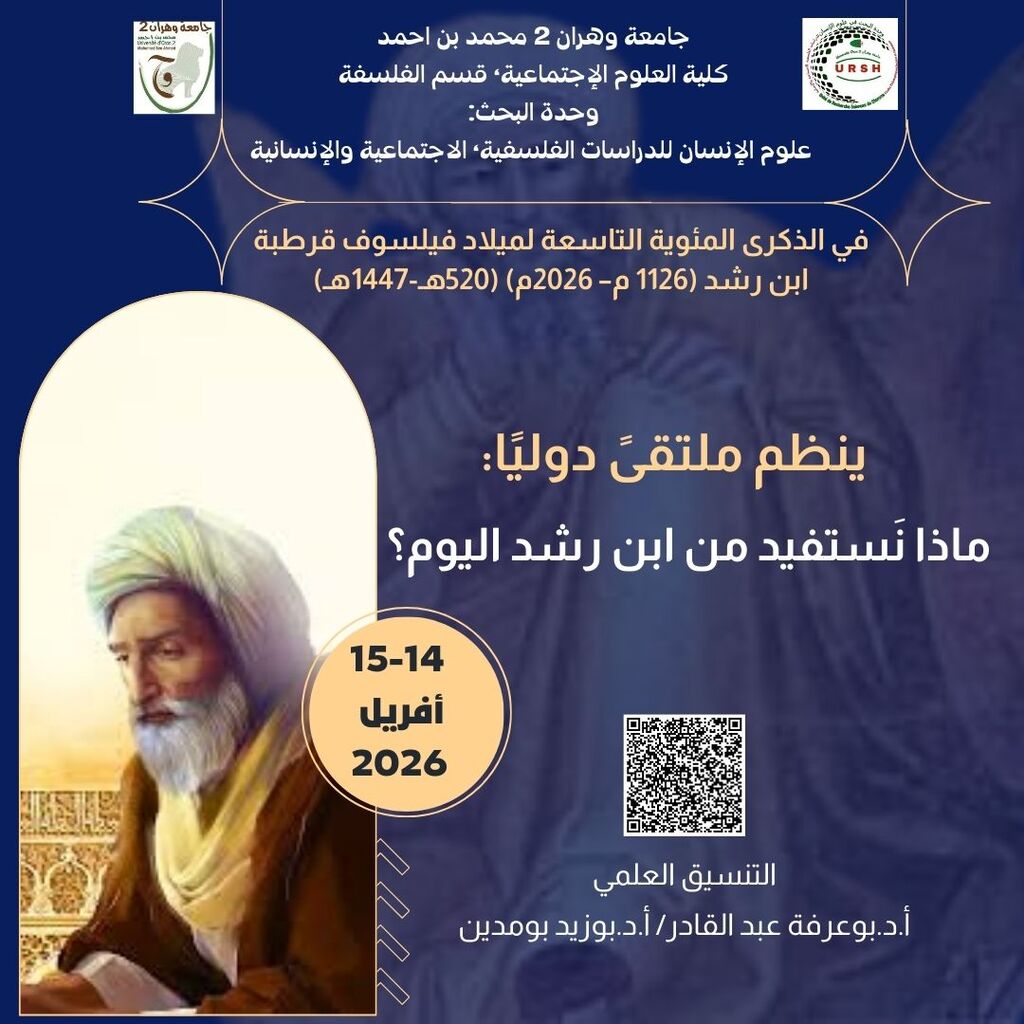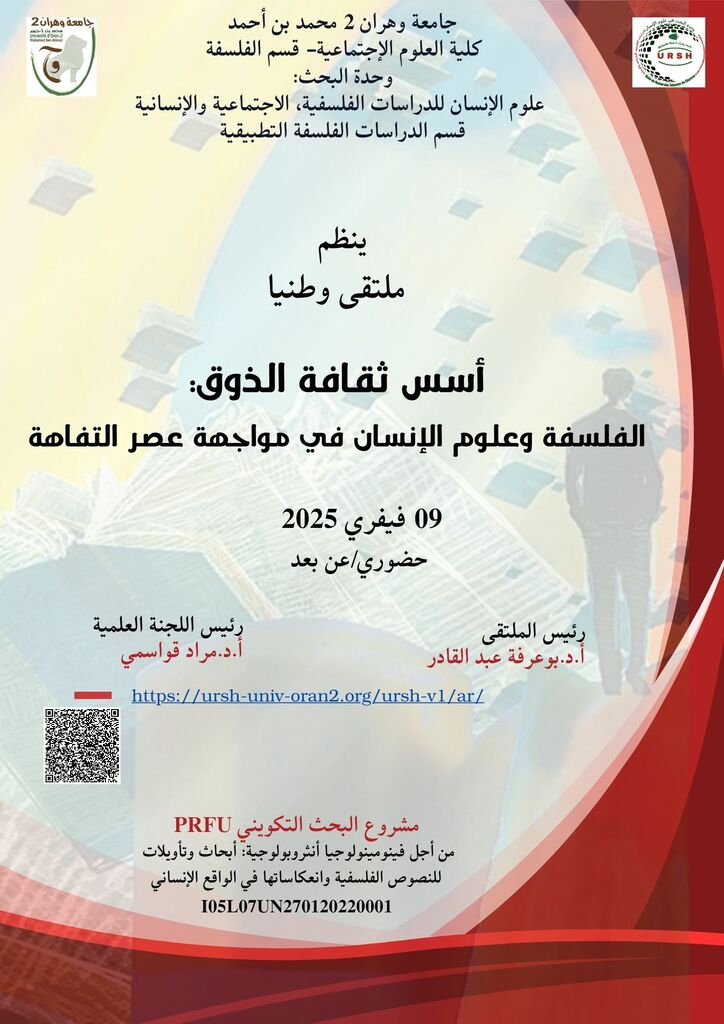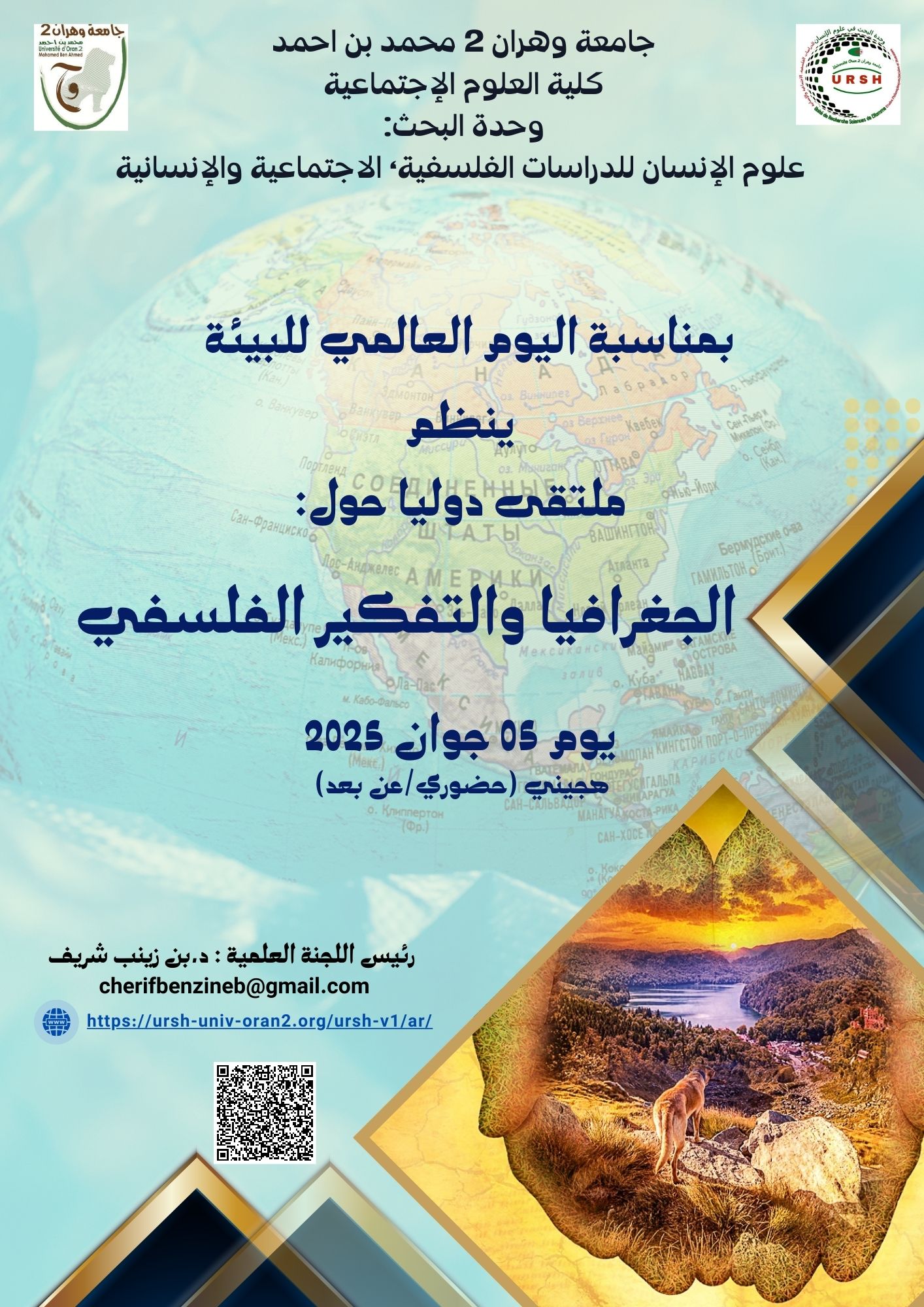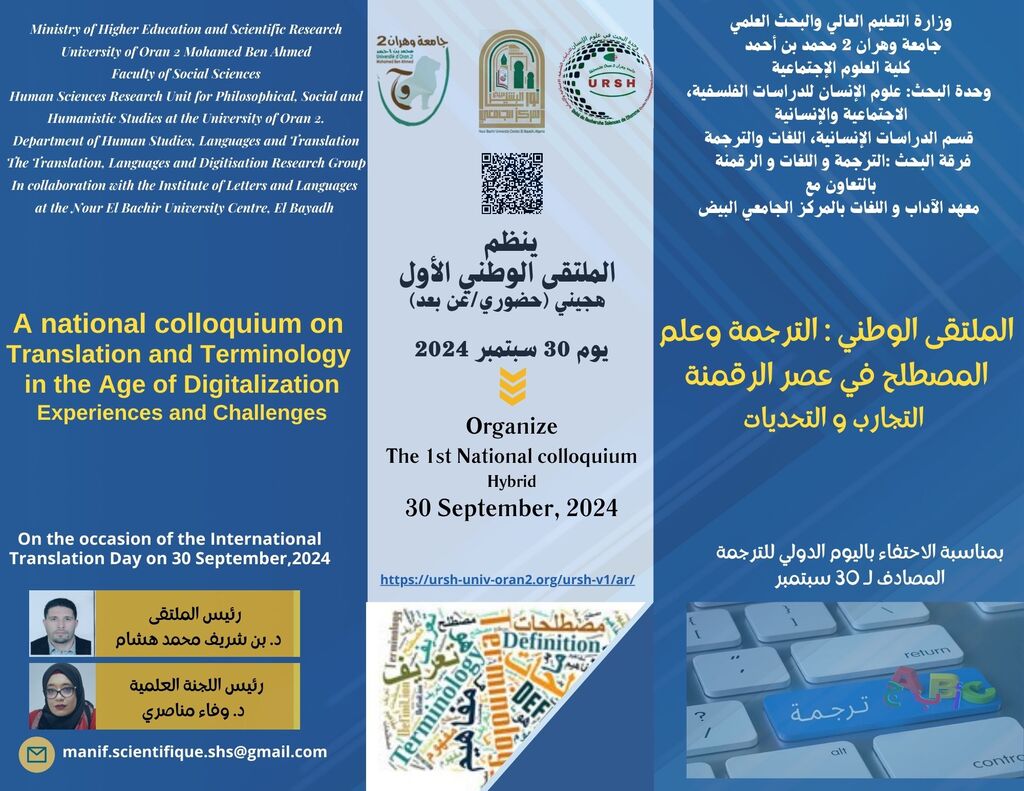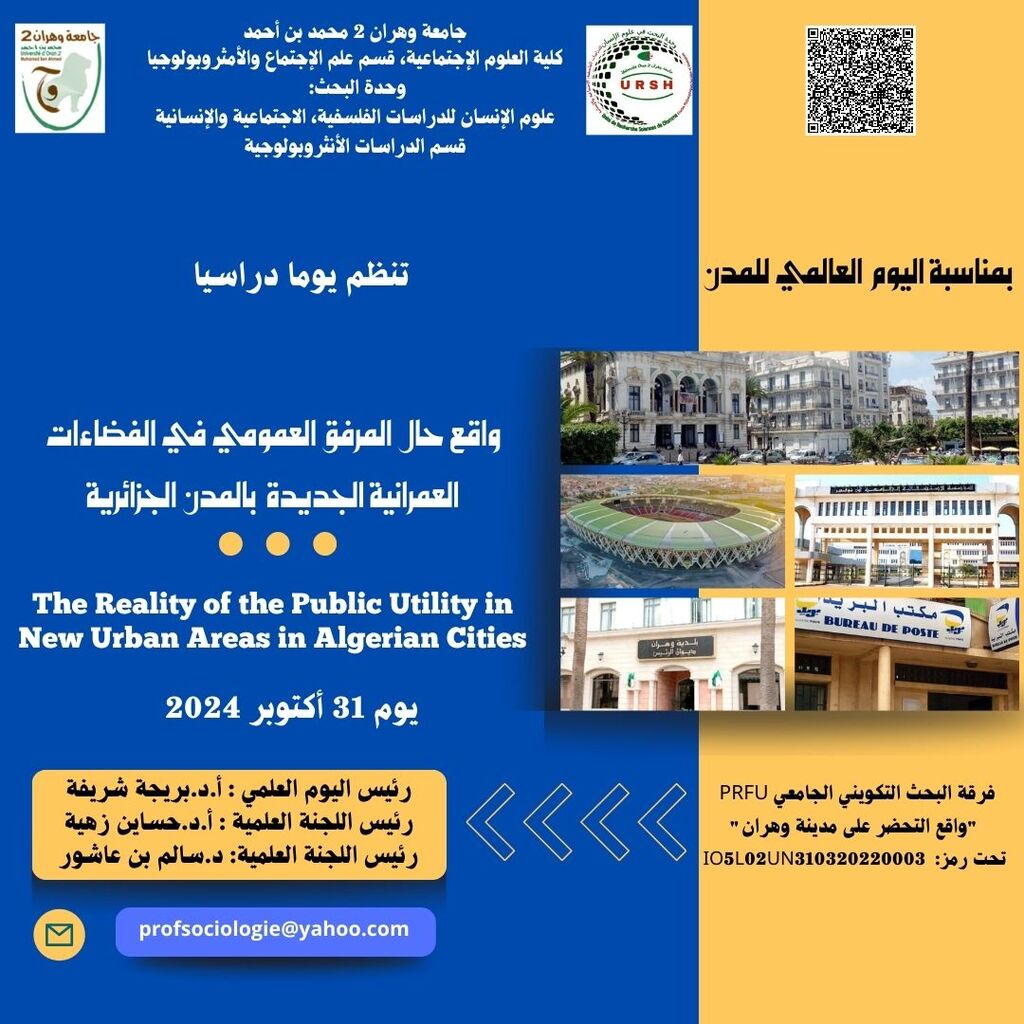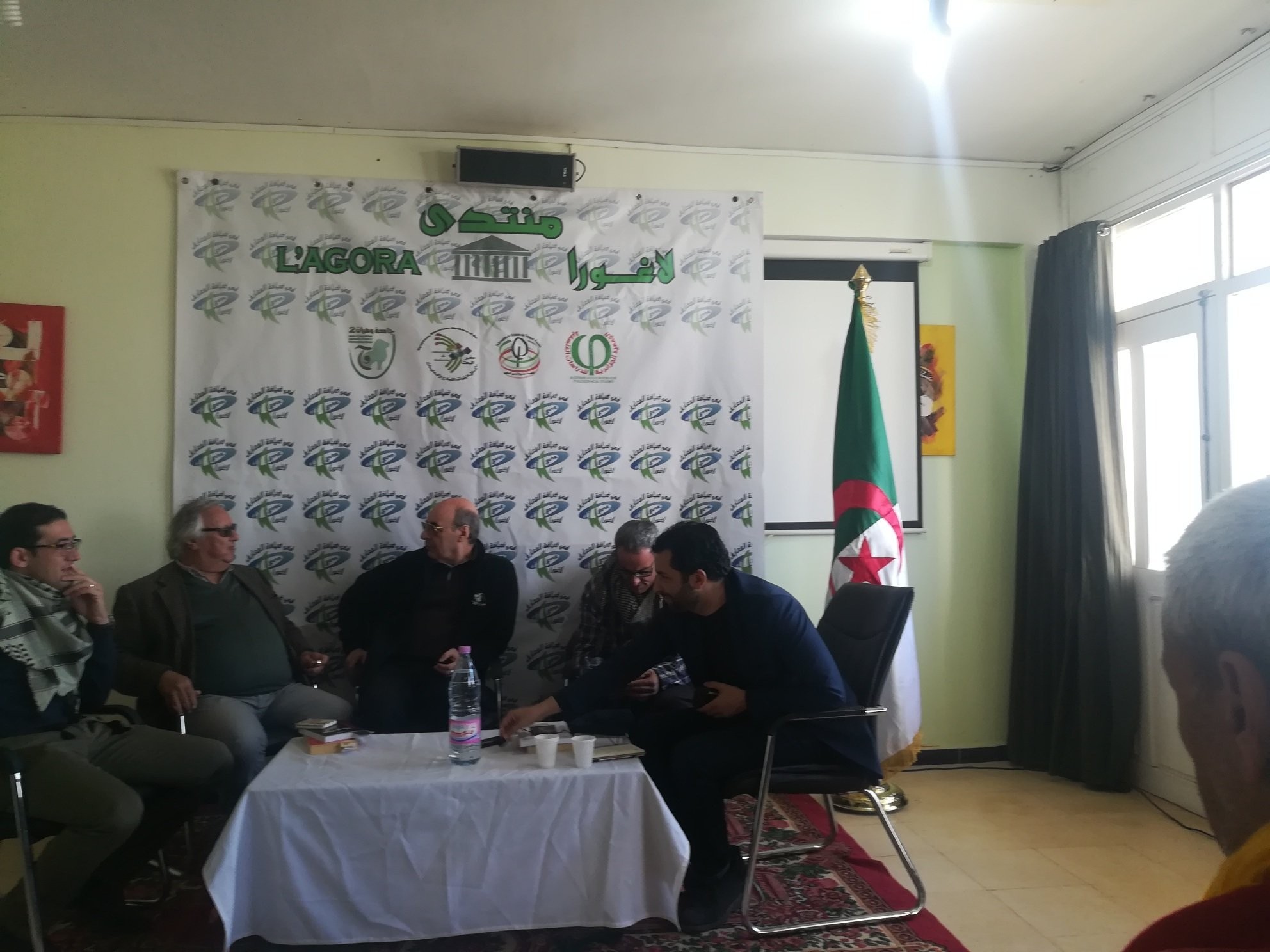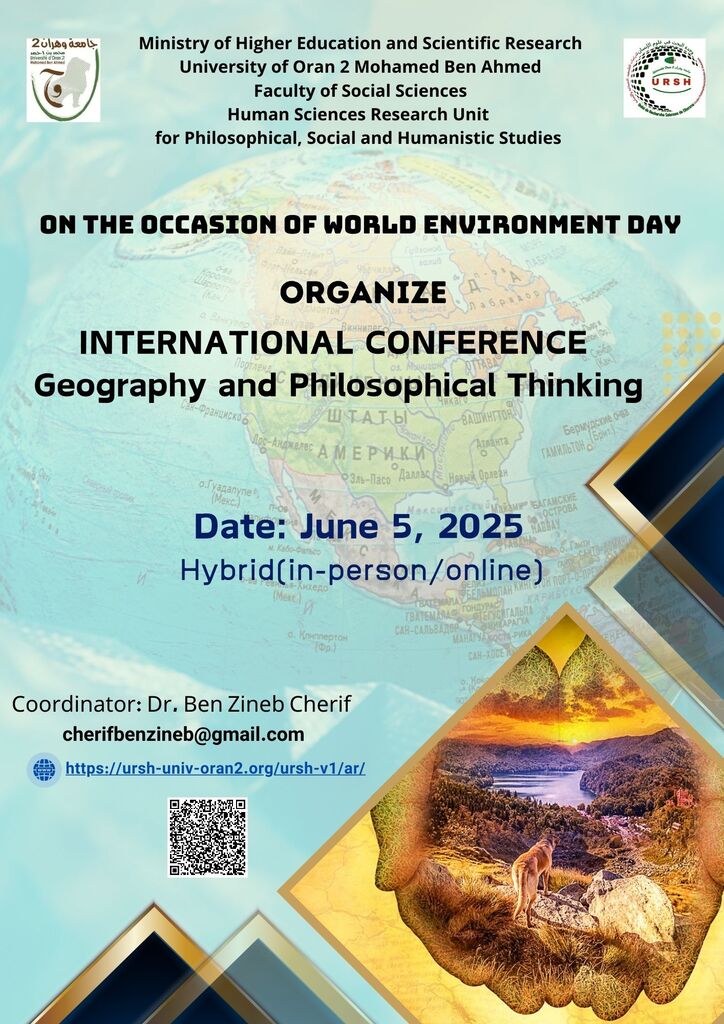
ملتقى دولي: الجغرافيا والتفكير الفلسفي
بمناسبة اليوم العالمي للبيئة تنظم ندوة علمية دولية (حضوري/عن بعد)
الموسومة بـــ: الجغرافيا والتفكير الفلسفي
يوم 05 جوان 2025
الديباجة:
ينظر إلى الإنسان على أنه جزءاً من الطبيعة، جزئية تحمل من الأهمية لا يختلف فيها اثنان، جزئية تمحورت حول علاقة بين الإنسان والطبيعة ، علاقة معقدة من حيث التأثير والتأثر، فالطبيعة بتمظهراتها العديدة تعمل على التأثير على الإنسان من حيث البنية الجسمانية، والذهنية، وحتى النفسية، وفي الوقت نفسه نجد الإنسان يعمل جاهداً على تسخيرها واخضاعها له، مما ينتج نوعاً من فرض الذات كل طرف على الآخر.
اهتم الإنسان وما يزال بالمناخ كظاهرة كونية تمس حياته بصورة مباشرة وغير مباشرة. مما أدى إلى تعدد الدراسات المتعلقة بالمناخ من حيث الوقوف على العلاقة بين المناخ والإنسان، ولم تكن هذه النظرة إلى الطبيعة وتأثير المناخ على الإنسان بالأمر المحدث المستجد، بل هي قديمة قدم التفكير الإنساني، وهاهم الفلاسفة الطبيعيين على غرار طاليس، أنكسِمندرس، أنكسِمانس هيراقليدس، بارمنيدس، أنبادوقليدس، وأنكساغوراس جعلوا من الطبيعة وعناصرها الكوسمولوجية موضوعاً لفلسفاتهم.
توجه الفلاسفة الطبيعيين نحو العالم الخارجي، لدراسة نشأة الكون وتفسير الطبيعة، واضعين بذلك قطيعة مع الفكر الأسطوري (الميتوس)، مما جعل هؤلاء الحكماء يمثلون الإرهاصات الأولى للتفكير الفلسفي العقلي والتأسيس للوغوس، وبهم ترتبط بداية فعل التفلسف.
إن الدارس للفلسفة سيقف بالضرورة على تلك المواضيع الهامة التي أرقت التفكير الإنساني من مواضيع الميتافيزيقا، الأنطولوجيا، الأكسيولوجيا وغيرها، ولكن موضوع الجغرافيا وتأثيرها على الإنسان لم ينل الحظ الأوفر من الدراسة، وإن كان الفلاسفة أفردوا نصوصاً لموضوع المناخ وتأثيراته على بنية الإنسان الجسمانية والنفسية، لهذا يأتي هذا الملتقى لتسليط الضوء على هذه العلاقة بين الجغرافيا والتفكير الفلسفي.
عندما نتحدث عن الجغرافيا، فنحن بالضرورة نشير إلى ذلك الحيز المكاني بأبعاده المناخية وتضاريسه ودور الإنسان في التآثير عليها، من خلال ما يتمظهر من منشآت عمرانية مختلفة، وعلاقة هذه الأخيرة بالإنسان.
إشكالية الملتقى:
تتمحور إشكالية الملتقى حول مدى تأثير البيئة بمكوناتها من تربة، ومياه، ونباتات ومناخ بشتى مظاهره من تأثير على الإنسان وتكوين طبائعه، وهل للمناخ تأثير على التفكير الإنساني؟ وهل للمناخ علاقة بمواقف الإنسان الروحية والدينية والاجتماعية؟ هل يمكن توظيف التفكير الفلسفي في التخطيط العمراني؟
محاور الملتقى:
- الجغرافيا والتفكير الفلسفي :مفاهيم وسياقات.
- البيئة و الفلسفة.
- الجغرافيا والتفكير الفسلفي( الحضارات الشرقية، الحضارة اليونانية، الحضارة الرومانية، الحضارة العربية الإسلامية، الفلسفة الحديثة والمعاصرة).
- التفكير الفلسفي والعمارة والتخطيط الحضري.
- العمران والصحة.
- الجماليات والعمران.
الأهداف
- التعرف على العلاقة بين الجغرافيا و التفكير الفلسفي.
- الوقوف على تأثير المناخ والجغرافيا في التفكير الفلسفي.
- اظهار قيمة التفكير الفلسفي من خلال البعد الإستطيقي في فن العمارة.
- التأكيد على أهمية بناء علاقة تكمالية بين الإنسان والبيئة، وإبراز دور التفكير الفلسفي في الحفاظ على البيئة وتأثير هذه الأخيرة على صحة الإنسان.
مواعيد هامة
آخر أجل للاستلام إستمارة المشاركة 30 أكتوبر 2024
الرد على طلب المشاركة 15 نوفمبر 2024
آخر أجل لارسال المداخلة 01 فيفري 2024
عقد الملتقى (حضوري/عن بعد) : 05 جوان 2025
ملاحظة:الأعمال تنشر في استكتاب جماعي
**********
رئيس الملتقى: مدير وحدة البحث الأستاذ بوعرفة عبد القادر
المنسق العلمي/د.بن زينب شريف
رئيس لجنة التنظيم: أ.د.دراس شهرزاد
هام: ترسل السيرة الذاتية إلى البريد الالكتروني التالي:
Cette adresse e-mail est protégée contre les robots spammeurs. Vous devez activer le JavaScript pour la visualiser.
رابط التسجيل
⇓
https://forms.gle/RTwcFcTUTUDmdJZy5
International Symposium: Geography and Philosophical
Thinking On the occasion of World Environment Day,
an international scientific symposium (in-person/online)
will be organized under the title: Geography and Philosophical Thinking
Date: June 5, 2025
Introduction:
Humans are viewed as a part of nature, a notion of undeniable importance. This notion revolves around the complex relationship between humans and nature, characterized by mutual influence. Nature, in its many manifestations, affects humans physically, mentally, and even psychologically, while humans strive to harness and subdue nature, creating a dynamic of mutual assertion. Humans have always been interested in the climate as a universal phenomenon that directly and indirectly affects their lives. This has led to numerous studies on the relationship between climate and humans. This perspective on nature and climate's impact on humans is not new; it dates back to the earliest human thought. Ancient natural philosophers like Thales, Anaximander, Anaximenes, Heraclitus, Parmenides, Empedocles, and Anaxagoras made nature and its cosmological elements the subject of their philosophies. These natural philosophers turned their attention to the external world to study the origin of the universe and explain nature, breaking away from mythological thinking (mythos). This shift marked the early beginnings of rational philosophical thought and the foundation of logos, linking the start of philosophical inquiry to these sages. Philosophy students will inevitably encounter significant topics that have troubled human thought, such as metaphysics, ontology, and axiology. However, the subject of geography and its impact on humans has not received extensive study. Although philosophers have addressed the topic of climate and its effects on the human body and psyche, this symposium aims to highlight the relationship between geography and philosophical thinking. When we talk about geography, we necessarily refer to the spatial dimension with its climatic aspects and terrain, and the role of humans in influencing it, as manifested in various urban constructions and their relationship with humans. Symposium
Problematic:
The symposium's central question revolves around the extent to which the environment, with its components of soil, water, plants, and climate, affects humans and shapes their nature. Does climate influence human thinking? Does climate relate to human spiritual, religious, and social attitudes? Can philosophical thinking be applied in urban planning?
Symposium Themes:
Geography and Philosophical Thinking:
Concepts and Contexts. Environment and Philosophy.
Geography and Philosophical Thinking (Eastern civilizations, Greek civilization, Roman civilization, Arab-Islamic civilization, modern and contemporary philosophy).
Philosophical Thinking and Urban Planning.
Urbanization and Health.
Aesthetics and Urbanization.
Objectives: Important Dates:
Important Dates: Deadline for Submission of Participation Form: October 30, 2024
Response to Participation Requests: November 15, 2024
Deadline for Submission of Papers: February 01, 2024
Symposium Date (in-person/online): June 5, 2025
Note: The papers will be published in a collective book.
Scientific Coordinator: Dr. Ben Zineb Cherif
Please send your CV to the following email address: Cette adresse e-mail est protégée contre les robots spammeurs. Vous devez activer le JavaScript pour la visualiser.
Registration Link:
⇓
https://forms.gle/RTwcFcTUTUDmdJZy5
- Détails
- Écrit par مسير الموقع
- Création : 5 juin 2024



